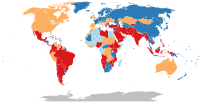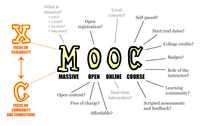
Persistence Model of Non-traditional Online Learners: Self-Efficacy, Self-Regulation, and Self-Direction
Sign Up to like & getrecommendations! Published in 2020 at "American Journal of Distance Education"
DOI: 10.1080/08923647.2020.1745619
Abstract: ABSTRACT This quantitative non-experimental correlational study examined the associations among the predictor variables of first year, first semester nontraditional online learners’ self-regulation, self-direction, and self-efficacy with the criterion variable of semester-to semester persistence. A nonprobability… read more here.
Keywords: semester; regulation self; self efficacy; self regulation ... See more keywords

Online learners’ interactions and social anxiety: the social anxiety scale for e-learning environments (SASE)
Sign Up to like & getrecommendations! Published in 2020 at "Interactive Learning Environments"
DOI: 10.1080/10494820.2020.1769681
Abstract: Social sharing in virtual learning environments differs from real environments, resulting in a need for a specialized data collection tool related to social anxiety in these environments. This stud... read more here.
Keywords: anxiety; learning environments; interactions social; learners interactions ... See more keywords

Evaluating Crowdworkers as a Proxy for Online Learners in Video-Based Learning Contexts
Sign Up to like & getrecommendations! Published in 2018 at "Proceedings of the ACM on Human-Computer Interaction"
DOI: 10.1145/3274311
Abstract: Crowdsourcing has emerged as an effective method of scaling-up tasks previously reserved for a small set of experts. Accordingly, researchers in the large-scale online learning space have begun to employ crowdworkers to conduct research about… read more here.
Keywords: crowdworkers proxy; evaluating crowdworkers; behave comparably; online learning ... See more keywords